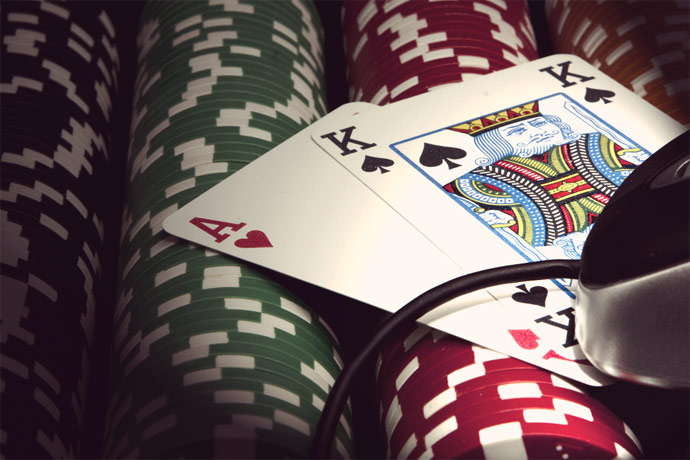It’s Addictive And Good For The Economy! New Developments In Online Gambling Legislation


In a city where cigarette and soft-drink addictions are constantly monitored and are being ground further into the dirt with every passing day, there is one addiction that is going overlooked by many legislators. In fact, newly-proposed legislation even encourages this activity, and every beer-guzzling online poker player from Queens to Schenectady may soon be able to enjoy his hobby with the full support of New York state law.
On Thursday, Republican Congressman Peter King proposed a new law, called the Internet Gambling Regulation, Consumer Protection and Enforcement Act of 2013, which would make online gambling more accessible and allow players to bet more confidently knowing their money was secure and the industry was legal.
In a statement to the press, King explained the move, “A common federal standard will ensure strong protections for consumers, protect against problem and underage gambling, and make it easier for businesses, players, lawmakers and regulators to navigate and freely participate.”
As of last month, this proposal has precedent: on May 1, 2013, Nevada passed a law and became the first state to fully legalize online poker for state residents aged 21 and older.
Many casinos were originally run by the mafia and other organized crime, providing lavish income through underground speakeasy-style gambling houses. Arkansas, Florida and Texas all had blossoming gambling empires during Prohibition, when many states had banned alcohol and gambling altogether.
It wasn’t until 1931 that Nevada legalized the practice, and Las Vegas was birthed in a storm of mob bosses and criminal lords fighting for control of the city. New Jersey legalized gambling in 1977 for Atlantic City and, in doing so, sponsored a thriving tourist destination.
Those major gambling cities still thrive today, bringing in nearly $10 billion annually. King’s proposal for legalizing online gambling could easily provide a welcome boost to the floundering economy of the United States. After all, as laws currently stand, an estimated one out of every four gambled dollars is spent gambling online.
By the year 2020, Morgan Stanly predicts that online gambling in the United States alone will rake in the same revenue as casino hotspots Atlantic City and Las Vegas combined; as previously mentioned, that’s a whopping $9.3 billion.
The Unlawful Internet Gambling Enforcement Act of 2006 prevented online gambling sites from doing business with American financial institutions, making it very difficult for most online gamblers in America to make money. UIGEA forced many online gambling sites to shut down, but the enforcement of the law has been circumstantial, leaving many gambling sites live and active.
Furthermore, in 2011 the FBI shut down some of these sites, but this act was only temporary. The Department of Justice later issued a ruling that online gambling should be a state, not federal, regulation.
As recently as last year, Senate Majority Leader Harry Reid, a Democrat from Nevada, along with Sen. Jon Kyl, an Arizona Republican, were pushing to re-federalize online poker regulations but dropped the case. However, King’s new proposal has them re-thinking the situation.
American Gaming Association CEO Frank Fahrenkopf, who worked with them during the process, explained, “We spent the last four years working very, very hard to get in a position to support such legislation if it was introduced. So we’re now left in a situation where Kyl, who was very important in the process, has retired, and you’ve got a multitude of states starting to pass legislation. So we think the urgency is even more important now.“
There are still quite a few states morally opposed to the legality of online gaming, but if King has his way, it looks like every gambler with a laptop in New York might soon be able to nurse his online addiction legally and guilt-free. Because, hey! He’s boosting the economy all at the same time.









































